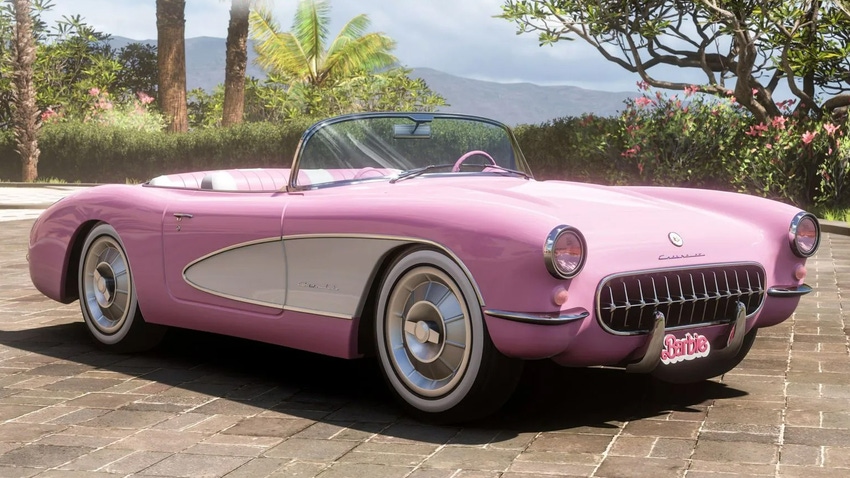
FRANKFURT, Germany (AP) — The European Union moved Wednesday to increase tariffs on electric vehicles made in China. EVs are the latest focal point in a broader trade dispute over Chinese government subsidies and the Asian nation’s expanding exports of green technology to the 27-nation bloc.
Here are some key details about the EU’s proposed tariffs:
What actions did the European Union take?
The European Commission, the EU’s governing body, indicated that initial findings of its ongoing investigation into Chinese EV subsidies reveal that the country’s battery electric vehicle sector benefits from "unfair subsidization" which negatively impacts EU competitors. It intends to implement provisional tariffs of up to 38.1% on electric vehicles imported from China. This is in addition to the existing 10% duties on all imported EVs.
The commission singled out three major Chinese EV players in Europe, announcing additional duties of 17.4% on electric cars from BYD, 20% on those from Geely, and 38.1% on vehicles exported by China’s state-owned SAIC.
Geely owns a portfolio of well-known brands, including Polestar, British sports car maker Lotus, and Volvo from Sweden, while SAIC possesses Britain’s MG, one of Europe’s top-selling EV brands.
Other EV manufacturers in China would face tariffs of at least 21%.
The commission stated that it has engaged with Chinese authorities to seek potential resolutions, but if no agreement is reached, the tariffs will be implemented on July 4.
Why did the commission take action?
The value of battery-powered cars imported to Europe surged from $1.6 billion in 2020 to $11.5 billion last year, according to research firm Rhodium Group. Most of the imports are from Western automakers with manufacturing facilities in China, including Tesla and BMW.
EU officials argue that Chinese domestic automakers are capturing market share by undercutting European car brands on pricing due to substantial subsidies from Beijing.
EU officials are concerned that unfairly subsidized imports could harm Europe’s manufacturers and the continent’s green technology sector. European nations also provide subsidies for electric cars. The key issue in trade disputes is whether subsidies are fair and accessible to all automakers, or if they distort the market in favor of one side.
The planned tariffs seek to level the playing field by offsetting the excessive or unfair subsidies available to Chinese carmakers. The commission did not specifically target Western auto brands, but indicated that Tesla may receive an individualized duty rate if the tariffs are officially imposed.
How do the EU tariffs compare to those announced by the U.S.?
The Biden administration is increasing tariffs on Chinese EVs from 25% to 100%. While the U.S. currently imports minimal Chinese cars, similar to the European Commission, the administration is concerned that subsidies harm domestic companies and job opportunities.
The U.S. tariffs essentially block nearly all Chinese EV imports, whereas the European Union requires affordable electric cars from overseas to meet its objectives of reducing greenhouse gas emissions by 55% by 2030.
Just how affordable are Chinese EVs?
Chinese automakers have excelled in producing electric vehicles at low costs amidst intense price competition in the world's largest automotive market. According to figures from Rhodium Group, BYD's Seal U Comfort model sells for 21,769 euros ($23,370) in China but 41,990 euros ($45,078) in Europe. The base model of BYD's compact Seagull, set to debut in Europe next year, is priced around $10,000 in China.
If the competitive business environment is fair, cheaper Chinese vehicles benefit consumers and encourage European carmakers to lower prices and enhance their offerings, as stated by Niclas Poitiers, a trade expert at the Bruegel think tank in Brussels. "They are very cost-competitive and increase the pressure on other manufacturers that have been lagging," he mentioned.
The objection from Europe is against unfair access to subsidies. Poitiers emphasized that an EU green policy leading to the decline of domestic manufacturers due to unfair competition would not be politically sustainable.
How does China support its electric car industry?
In China's "market socialist" economy, state-owned enterprises play a significant role. The government also guides and assists privately-owned companies to fulfill Beijing's economic development objectives.
For EVs, this includes government fleet orders, low-interest loans from state-owned banks, favorable factory lands from local governments, tax incentives, and subsidized materials and parts from state-owned industries.
The varying forms of financial support complicate the EU’s argument due to challenges in gathering data on some practices. The EU noted that BYD, Geely, and SAIC were selected as a sample for calculating the duties. Other Chinese manufacturers that cooperated with the investigation but were not included in the sample will face additional duties of 21%, while those that did not cooperate will be subject to the 38.1% rate, as per the commission.
What are the implications for European drivers and carmakers?
Chinese cars are expected to become pricier, reducing the pressure on European carmakers to maintain competitive prices. However, Chinese companies have the capability to produce cars at such low costs that they might still be able to sell profitably, even with duties as high as 30%.
European carmakers producing electric vehicles in China could be impacted as well. Although they receive some government support in China, it is less compared to their Chinese counterparts.
According to calculations from Rhodium Group, five out of six models from BYD would still generate profits in Europe even with a 30% tariff, whereas a China-made Tesla Model 3 would be sold at a loss.
Tariffs ranging from 15-30% could potentially disrupt the business operations of foreign players such as BMW and Tesla, which use China as an export base to Europe, as outlined in the Rhodium Group report.
How is China likely to respond?
China is expected to retaliate against the tariffs and urge European officials for negotiations. The China Chamber of Commerce to the EU warned that Beijing might raise duties on cars with engine sizes exceeding 2.5 liters, affecting German luxury automakers like Volkswagen’s Porsche.
Beijing reacted strongly after the European Commission revealed its tariff plans. The increased tariffs were criticized as "a naked act of protectionism, escalating trade tensions and disrupting fair competition" in the name of "safeguarding fair competition," according to the Commerce Ministry. China called on the EU to rectify the situation promptly, asserting that it would take necessary measures while urging for immediate corrections from the EU.
However, the impact may be less significant than anticipated, according to analysts from research firm Sanford C. Bernstein.
Mercedes-Benz, BMW, and Volkswagen mainly manufacture the cars they sell in China at local factories. Only a small percentage of Volkswagen's sales in China are imports, making them less susceptible to higher tariffs; the figures are 15% for BMW and 19% for Mercedes-Benz.
European vehicles at risk of potential Chinese tariffs primarily consist of luxury models that yield substantial profits, such as Mercedes' S-Class vehicles and BMW's X6 and X7. These high-end cars cater to affluent customers who may be willing to pay premium prices "as long as their purchase behavior is not deemed unpatriotic," indicated the Bernstein analysts.
In the long run, Chinese automakers could evade tariffs by manufacturing cars in Europe. BYD is constructing a facility in Hungary, and Chery has a joint venture to produce vehicles in Spain's Catalonia region.


